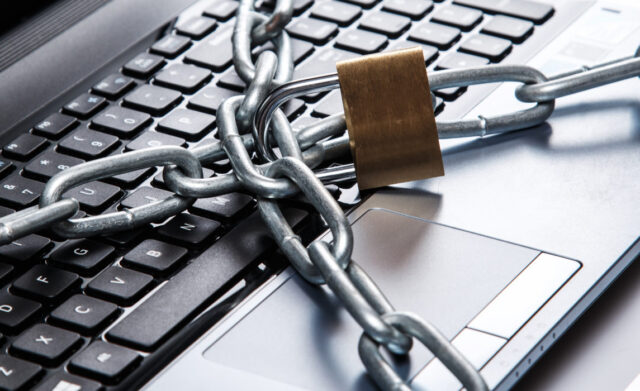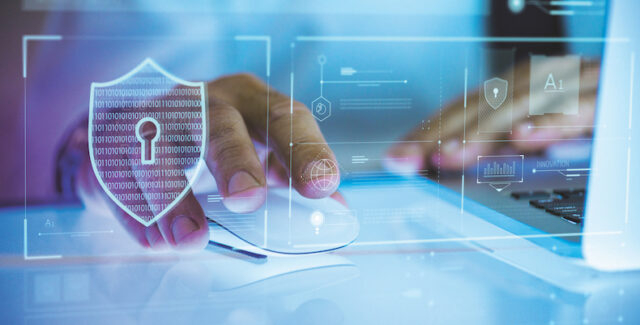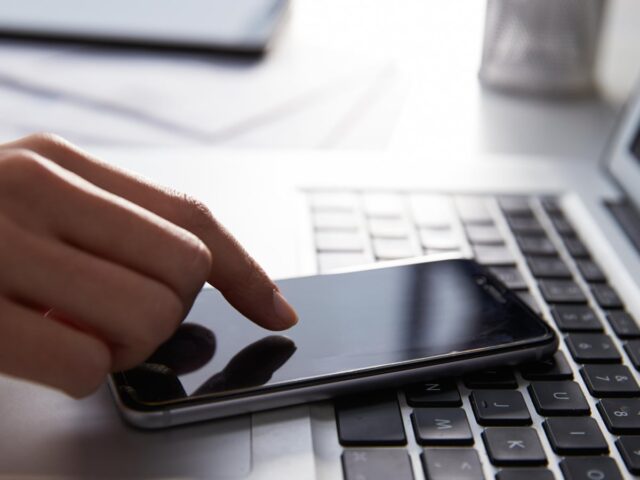
You’re concerned about your safety in real life. When you leave home, you make sure the home’s locked. Sitting in the car seat is no joke – you make sure the seat belts are hooked tight. Not just you, even malls and public places are making sure everyone’s safe with all their fancy safety checkpoints and metal detecting.
If we are so inclined on securing ourselves offline, why make a compromise with our digital activities when technology and the Internet are so influential in our lives?
That’s precisely why you, dear reader, are reading this article. We will explore things you do daily that compromise your safety online and how you can take the right measures to start building your online fortress and protect yourself against any fraudulent and hacking invader.
Why is online safety important?

In our times, it’s almost as if we live with two identities. One is our real self. The other is our digital self. If the real self owns a government ID, the digital self has an electronic copy of it stored on some server. The real self enjoys reading books. Well, the digital self just made sure the people know that on Facebook. Oh, did you visit a famous tourist place last week? Don’t worry, your phone’s live location access makes sure the people online know and is updated automatically.
Starting to get why your online safety is important?
It’s because every bit and piece of your personal information now exists in one form or another in the online world. Just Google yourself or use Nuwber to see what information about you is publicly available – you’ll be surprised to see how much is out there. Once this data starts falling into the wrong hands, it’s not going to be pleasant for you. We mean it – identity thefts, phishing scams, banking frauds, and blackmailing are only too readily possible now that the Internet has been alive and kicking for some years.
That should be enough to make your sirens start ringing and your safety instinct go haywire.
So, what’s not safe?

Everything.
Yes, you read that right. You can never be completely secure and safe in the online world. But you can do the next best thing: minimize the potential of getting hacked or scammed online.
You might have a few questions about your daily activities that make you vulnerable online.
1. So, saving my banking information on my favorite shopping website is not safe?
Well, saving your bank information anywhere is not safe. Even the most secure and verified websites stand the risk of data breaches. Cybercrime organizations are always looking to undermine the integrity of large corporations by penetrating their servers and breaching their data. In short, it’s never safe to keep your financial details anywhere, even your bank’s banking portal. Albeit, you don’t have a choice. You’ll be storing it one way or another. Ensuring the validity of the website helps, and removing your details once the transaction is done is also a great precaution.
2. I just tick mark those useless Terms and Conditions and Privacy Policy boxes when I sign up on a new platform. At least that should be safe, right?

Not a smart move. Here’s why. These cunning online websites hide their true intentions underneath all the legal jargon written in Terms and Conditions and Privacy Policy documents. When you make that tick mark, you are giving consent to these websites to use your activity on their website, be it personal or public, at their whim. They can then choose to sell it to marketing and advertising companies, which means more spam for you, or if you managed to get yourself on a more suspicious platform, who knows, they might sell your data to a hacking organization. Just saying, it’s quite possible. There’s enough data and statistics to prove it.
Better start paying attention to those boxes before tick-marking them.
3. You said something about my phone’s location service in the first point. What’s the deal with that? Can I keep it on all the time and give every app access to it?
Absolutely yes and no. It depends on how you use location, which apps you give access to, and the places you often frequent. Apps with location access record your live movement. Their service providers know exactly where you are and where you will be. No one likes prying service providers stalking their location only to later sell it as data without your consent, do they?
But the problem is, you did give them consent when you gave them access. You cannot completely eliminate location use, it’s a pretty reliable service. What’s the next best of kin? You can keep it off when it’s not needed. Secondly, be careful with giving any random app access to it. Use it only for reliable apps that genuinely make use of locations for your better experience.
4. These services keep pestering me with verifying if I am accessing my own account through email or SMS. Is that any good?

This is called two-factor authentication. It’s a game-changer. If a service provides it, you use it. It’s that simple. Imagine someone trying to access your account while you are unaware of it. You will instantly get a notification, and you can even choose to a lockout that device from continuing. How useful is that!
5. I logged in to my friend’s laptop with my Gmail account last week. I think he’s trustworthy so I didn’t bother removing my account. Did I make the right choice?
Your friend might be reliable, but others may have access to his device. And your friend can be absolutely trustworthy, but you can never rely on any man’s curiosity. That’s not philosophy, just a harsh fact.
Log out your account once your use is complete. That’s the wisest step to keep your data secure.
You can never completely eliminate the risk that accompanies online surfing, but with these few practical steps, you can reduce the potential of something dangerous happening to almost zero. So why not start doing that today.







